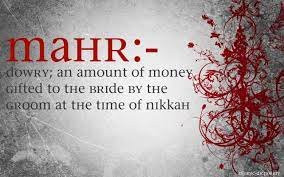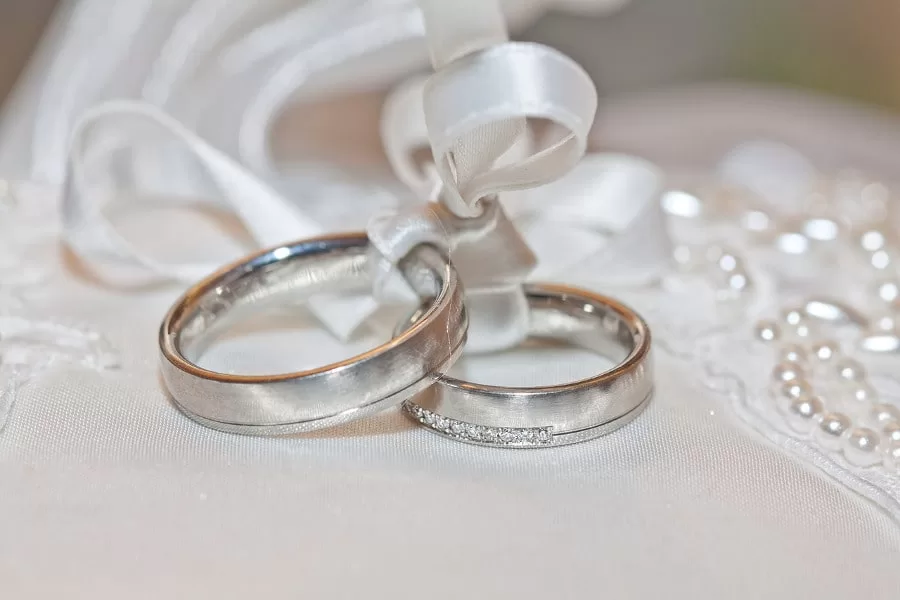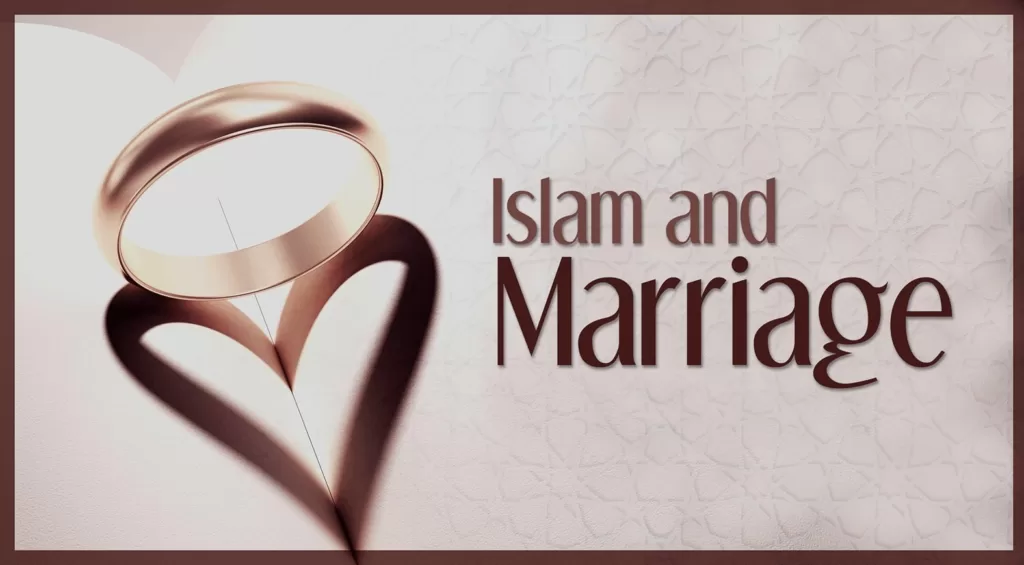Nikah in Islam and Mehar/Meher or Mahr: The Dower Money
Nikah in Islam: A Sacred Bond of Love and Responsibility
Nikah in Islam is a sacred contract that signifies the lawful union between a man and a woman. This spiritual and social bond is deeply rooted in Islamic teachings, reflecting a commitment to mutual respect, love, and shared responsibilities. Nikah in Islam is not merely a social arrangement; it is an act of worship and an essential step in fulfilling one’s religious and moral obligations.
The Significance of Nikah in Islam
In Islam, marriage is regarded as half of faith. The Prophet Muhammad (peace be upon him) emphasized the importance of marriage, stating, “Marriage is my Sunnah, and whoever does not follow my Sunnah has nothing to do with me.” This highlights that Nikah in Islam is a recommended and praiseworthy act that strengthens family structures and contributes to the well-being of society.
Nikah in Islam also serves as a means to protect individuals from immoral behavior. By establishing a lawful relationship, marriage provides an avenue for fulfilling natural desires while adhering to the moral and ethical framework prescribed by Islamic law.
The Essential Requirements for Nikah in Islam
1. Consent of Both Parties
One of the fundamental principles of Nikah in Islam is the free and willing consent of both the bride and the groom. Islam forbids forced marriages, and any union without mutual agreement is considered invalid.
2. Presence of Witnesses
The presence of at least two adult Muslim witnesses is a mandatory condition for the validity of a Nikah. Witnesses ensure that the marriage is a public affair, promoting transparency and accountability.
3. The Mehar/Meher/Mahr (the Dower Money)
Nikah in Islam requires the groom to provide a Mehar/Meher/Mahr (the Dower Money) to the bride. This is a mandatory gift agreed upon at the time of the Nikah and serves as a symbol of respect and financial security for the bride.
4. Recitation of the Nikah Sermon (Khutbah)
The Nikah ceremony includes a sermon that highlights the spiritual significance of marriage. The sermon often includes verses from the Quran and Hadith that underscore the rights and responsibilities of the couple.
The Role of Nikah in Strengthening Families
Nikah in Islam is the foundation of family life. It establishes a harmonious relationship between the spouses, fostering love, compassion, and understanding. The Quran beautifully describes the marital bond:
“And among His signs is that He created for you mates from among yourselves, that you may find tranquility in them, and He placed between you affection and mercy.” (Quran 30:21)
This verse illustrates that Nikah in Islam is designed to create a sanctuary of peace and emotional support within the family unit.
The Rights and Responsibilities in Nikah
Rights of the Husband and Wife
Nikah in Islam outlines the mutual rights and duties of both spouses. The husband is responsible for providing financial support, protection, and care. The wife, in turn, is entrusted with maintaining the home and supporting her husband in achieving their shared goals.
Equality and Justice
Islam emphasizes equality and justice within the marital relationship. Both spouses are expected to respect each other’s individuality, opinions, and needs. The Prophet Muhammad (peace be upon him) stated, “The best among you is the one who is best to his wife.”
The Importance of Communication in Nikah
Open and honest communication is vital for a successful Nikah in Islam. Misunderstandings and conflicts can often be resolved through effective dialogue. Islam encourages couples to practice patience and forgiveness, ensuring that their relationship thrives in a spirit of mutual respect and love.
Nikah as a Social Responsibility
Beyond the personal benefits, Nikah in Islam carries broader social implications. It promotes moral behavior, reduces societal issues such as immorality and exploitation, and contributes to the overall stability of the community. By fulfilling the obligations of Nikah, individuals play a role in building a just and harmonious society.
The Modern Perspective on Nikah in Islam
With changing times, the concept of Nikah in Islam has evolved to accommodate contemporary challenges. For instance, the rise of digital platforms has introduced new avenues for conducting Nikah, such as online Nikah services. However, the core principles of consent, transparency, and adherence to Islamic guidelines remain unchanged.
Common Misconceptions About Nikah in Islam
Forced Marriages
One widespread misconception is that Islam permits forced marriages. However, this is contrary to the teachings of the Prophet Muhammad (peace be upon him), who emphasized the importance of mutual consent in Nikah in Islam.
Polygamy
While polygamy is allowed in Islam under specific circumstances, it is often misunderstood. Islam permits a man to marry more than one wife only if he can ensure justice and fairness among them.
Preparing for a Successful Nikah
- Understanding Responsibilities: Couples should educate themselves about the rights and duties outlined in Nikah in Islam.
- Pre-Nikah Counseling: Seeking guidance from Islamic scholars or counselors can help couples prepare for a successful marital life.
- Spiritual Growth: Strengthening one’s relationship with Allah through prayer and reflection is crucial for a prosperous Nikah.
Nikah is a Profound and Sacred Institution
Nikah in Islam is a profound and sacred institution that goes beyond a mere legal contract. It is an act of worship, a source of emotional fulfillment, and a cornerstone for a stable and moral society. By adhering to the principles of Nikah in Islam, individuals can build a life of love, respect, and harmony. Whether viewed through a spiritual or social lens, Nikah remains a timeless and essential aspect of Islamic life.

Understanding the Significance of Mehar/Meher/Mahr (the Dower Money)
Mehar/Meher/Mahr (the Dower Money), also known as Sadiq, ajr, or Farida in the Quran, and hadiths, symbolize commitment and financial responsibility on the husband’s part. The woman’s legal right is to receive the Mehar, which is specified during or after the marriage contract. Unlike other contractual obligations, Mehar does not need to be mentioned during the Nikkah ceremony for it to be valid. It is an essential obligation for men, as specified in the Quran, the Sunnah, and the consensus of mujtahids.
Mehar/Meher/Mahr (the Dower Money), derived from the Arabic word which means dower, holds great significance in Islamic marriages. It is an essential component of the marriage contract and represents the financial benefit that a man provides to his wife upon their union. Here, we will delve into the concept of Mehar/Meher/Mahr (the Dower Money), exploring its origins, legal implications, cultural variations, and the role it plays in shaping Muslim marriages.
The Obligation and Purpose of Mehar
The payment of Mehar/Meher/Mahr (the Dower Money) is more than a mere gift; it represents the husband’s resoluteness in marriage, his love and respect towards his wife, and his commitment to fulfilling the financial responsibilities of building a family. Mehar/Meher/Mahr (the Dower Money) is often translated as a sum of money or other property to which the wife becomes entitled by marriage. However, it is not a consideration for the contract of marriage itself but rather an obligation imposed by Islamic law as a mark of respect for the wife.
Legal Implications and Customary Practices
In Islamic marriages, Mehar/Meher/Mahr (the Dower Money) can be specified by the wife or her guardian at the time of marriage. If no sum is specified, the wife is entitled to her proper dower, which is customarily fixed for the females of her family. The wife’s right to Mehar/Meher/Mahr (the Dower Money) becomes complete upon the consummation of the marriage, either in fact or according to the law’s recognition through valid retirement or the death of either spouse. In the case of dissolution or separation initiated by the husband before consummation or valid retirement, the wife is entitled to half of the specified Mehar or a present called muta’twain if no Mehar was specified.

Understanding the Timing and Obligation of Mehar/Mahr in Marriage
Timing and Payment of Mehar/Mahr: Mehar/Mahr can be categorized as either mua’jal (prompt) or muajjal (deferred), depending on the agreement between the parties involved or the country’s customs. During the subsistence of the marriage, the wife is entitled to demand the prompt portion of her Mehar/Mahr, but she is only entitled to demand the deferred portion once its specified time arrives. The fact that the value of the Mehar/Mahr does not need to be mentioned during the Nikkah ceremony highlights that the marriage contract is not a business contract, where mentioning the value is necessary for validation. Instead, it serves as a gift for women, emphasizing the husband’s obligation to provide for his wife.
Flexibility and Women’s Entitlement to Mehar/Mahr in Islamic Marriage
Flexibility and Women’s Rights: The obligation to pay Mehar/Mahr is non-negotiable and cannot be negated in the Nikkah. However, Islamic law allows for flexibility, as a woman can return the Mehar/Mahr to her husband or remit a portion of it voluntarily. While a woman is entitled to the Mehar/Mahr with the Nikkah, she is not obliged to receive it in hand. If she wishes, she can forgo her right in favor of her husband. This flexibility allows for mutual understanding and consideration within the marriage.
The Significance of Mehar/Mahr in Strengthening Islamic Marriages
In short, Mehar/Mahr, the dower money, plays a vital role in Islamic marriages, symbolizing commitment, financial responsibility, and respect for the wife. It represents the husband’s willingness to care for his wife and fulfill his obligations within the marriage. While Mehar/Mahr is a legal obligation, it also holds cultural and emotional significance. By embracing the concept of Mehar/Mahr, Muslim couples honor tradition, affirm their commitment to one another, and create a foundation of mutual respect and financial security.
Mehar/Mahr: A Pillar of Respect and Commitment in Islamic Marriages
Mehar/Mahr or dower, holds great significance in Islamic marriages. It is a legal right of the woman, specified either during or after the marriage contract. Although it is not required to be mentioned during the Nikkah for it to be valid, the husband must pay it. The Quran emphasizes the voluntary and generous nature of the Mehar/Mahr, stating that husbands should willingly give it to their wives. The payment of Mehar/Mahr symbolizes the husband’s commitment, love, and financial responsibility towards his wife, showcasing his dedication to building a family. It is not a consideration for the marriage contract but a mark of respect towards the wife, as evident from the fact that the absence of a specified dower does not affect the validity of the marriage.

The Wife’s Entitlement to Dower:
The wife’s entitlement to the dower becomes complete upon consummation of the marriage or through valid retirement or the death of either spouse. In cases of dissolution or separation initiated by the husband before consummation or valid retirement, the wife is entitled to half of the specified dower or a present known as muta’t wain if no dower was specified. If the separation is due to reasons attributable to the wife, she may not be entitled to any dower or present unless the marriage has been consummated. In cases where a marriage is annulled on the grounds of invalidity, the wife is entitled to no more than her proper dower. The timing of the dower payment can be immediate (mua’jal) or deferred (muajjal), depending on the contract or customs of the parties involved.
The Significance and Flexibility of Dower in Islamic Marriages: Understanding Mehar/Mahr Rights
It is important to note that while the value of the dower is not a condition for the validity of the marriage contract, it serves as an obligatory gift from the husband to the wife. The verses in the Quran emphasize that the dower is a gift for women, not a price. It cannot be denied or omitted in the Nikah, but a woman has the right to return or remit a part of the dower to her husband. The woman is entitled to the dower but can forgo receiving it, demonstrating flexibility and consideration within Islamic marital practices. The importance of Mehar/Mahr is widely acknowledged among scholars, leaving no dispute regarding its significance in Muslim marriages.
